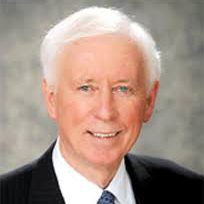116th German Medical Assembly
(28.05.13) Today it was my privilege, along with other international guests, to participate in the opening ceremonies of the 116th German Medical Assembly here in Hanover, Germany. The Assembly heard welcoming addresses from Stephan Weil, Prime Minister of the state of Lower Saxony, Bernd Strauch, Mayor of the City of Hanover and Dr. Bernard Rochell, Secretary General of the German Medical Association (GMA). Professor Dr. Frank Montgomery, President of the GMA, provided the official welcome to the General Assembly and described the topics this years Assembly will address. They represent major issues facing German physicians as well as health care systems around the world and they include:
- Future demands on health insurance
- The influence of market forces on medicine
- The impacts of poverty on health
- Continuing medical education: Revision of the (Model) Regulations on Continuing Medical Education
- Specialty training: (Model) Specialty Training Regulations
I brought greetings from the World Medical Association, which are copied below.
“It is an honor for me to be here in Hanover at this German Medical Assembly. I come bringing greetings and best wishes from the World Medical Association.
The World Medical Association (WMA) is a global federation of 102 national medical associations representing millions of physicians worldwide. Acting on behalf of patients and physicians the WMA endeavors to achieve the highest possible standards of medical care, ethics, education and health-related rights for all people.
The German Medical Association is one of the leading members of the World Medical Association, serving not only in our General Assembly but also on the WMA Council. Over the years the World Medical Association has benefited from the German Medical Association’s strong constructive involvement in policy making.
In addition the WMA currently benefits from wise, effective leaders such as your president Professor Frank Montgomery who is WMA treasurer. Ramin Parsa Parsi from your Department of International Affairs is ably chairing our most important WMA workgroup on revisions to the Declaration of Helsinki. And one of your members, Otmar Kloiber is serving the WMA as Secretary General. We benefit greatly from the leadership, skills and wisdom he brings to that position.
So, I thank you the members of the German Medical Association for your participation in the World Medical Association. You are important to us.
As I travel around the world this year speaking for the World Medical Association, I think about that WMA goal of achieving the highest possible standards of medical care, ethics, education and health-related rights for all people.
To that end my message is focused on three areas that I believe are of utmost importance to physicians and the patients we serve.
First is the moral imperative of ethics in medicine. We as physicians are most credible when we speak from a platform based on principle and ethics. That means we must speak out on broad public health issues. Doing that makes our message more credible – and more effective – when we advocate on matters of public policy. There is perhaps no clearer example of the WMA speaking out on ethics and principle than the Declaration of Helsinki that advises physicians on doing medical research on human subjects. The Declaration of Helsinki adopted in 1964 is the loadstone; the North Star if you will that guides physicians, governments and industry in this area.
Second is the challenge of noncommunicable diseases, the leading cause of death and disability worldwide in developed and in developing countries. These diseases are largely preventable, caused by unhealthy behavior – smoking, alcohol abuse, sedentary lifestyle and poor nutrition. And we know that unhealthy behavior is effected by the conditions in which people are born, grow, live, work and age – the so-called social determinants of health. And we as physicians, governments and society in general must join together to address this problem.
Third is the threat of climate change. Global warming with its accompanying climate change, and extremes of weather is already having and will continue to have significant health effects. And as physicians we have a role in helping our patients adapt to the effects of climate change and a role in supporting public policy to mitigate climate change.
Ethics, noncommunicable disease and climate change. How we respond to those three will in coming years test and define us as a profession dedicated to serving our patients.
As physicians, we are bound in our response by a common heritage of caring for the sick and the suffering. Through the centuries, individual physicians have fulfilled this obligation by applying their skills and knowledge – competently, selflessly and at times – heroically.
As physicians, we are joined by our common contract with humanity. We reach out to the sick, the disabled and the chronically ill. Suffering knows no language and easing pain, finding treatments, developing cures – know no borders.
Together, we can open new doors, share new insights, find new cures, head off disease and help our patients the world over live healthier, happier, longer more productive lives.
Together we are stronger.
Thank you and I look forward to this assembly.”
The German health care system was established by Count Otto von Bismarck in the late 19th century and by virtue of its longevity has much to teach about universal health care systems. The German system relies mandatory insurance paid for by contributions of employers and employees and administered by private insurance companies.
The GMA represents the interests of 449, 409 physicians in matters relating to professional policy. It is the joint association of the 17 German state Chambers of Physicians, which are registered corporations under public law and responsible for regulating members of the profession. Individual physicians are members of the GMA by virtue of being members of their local chambers.

